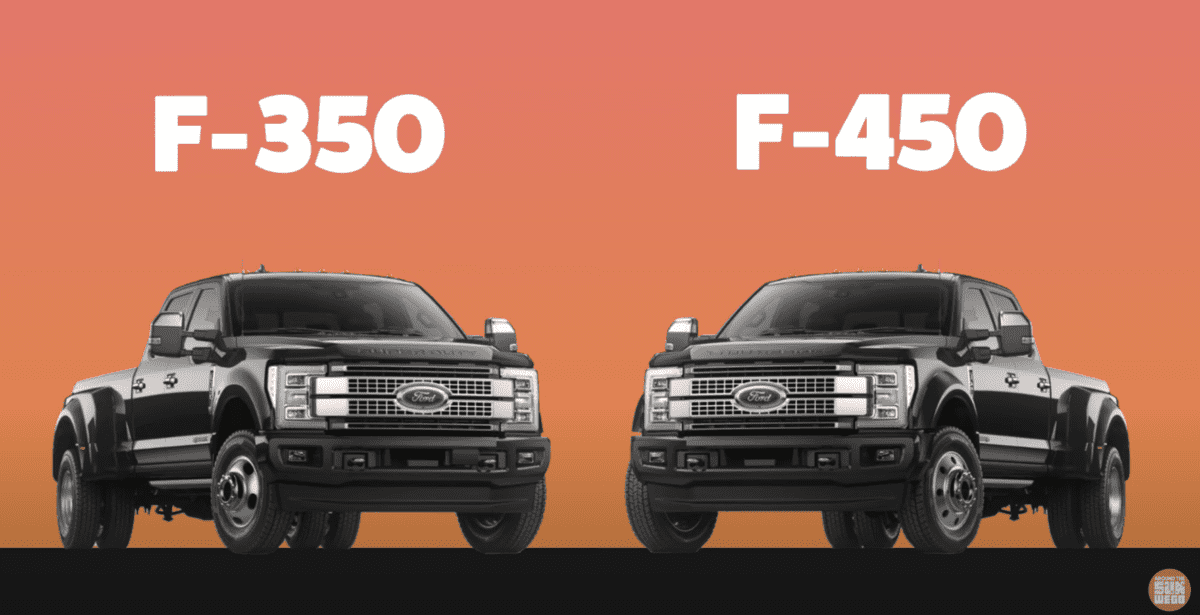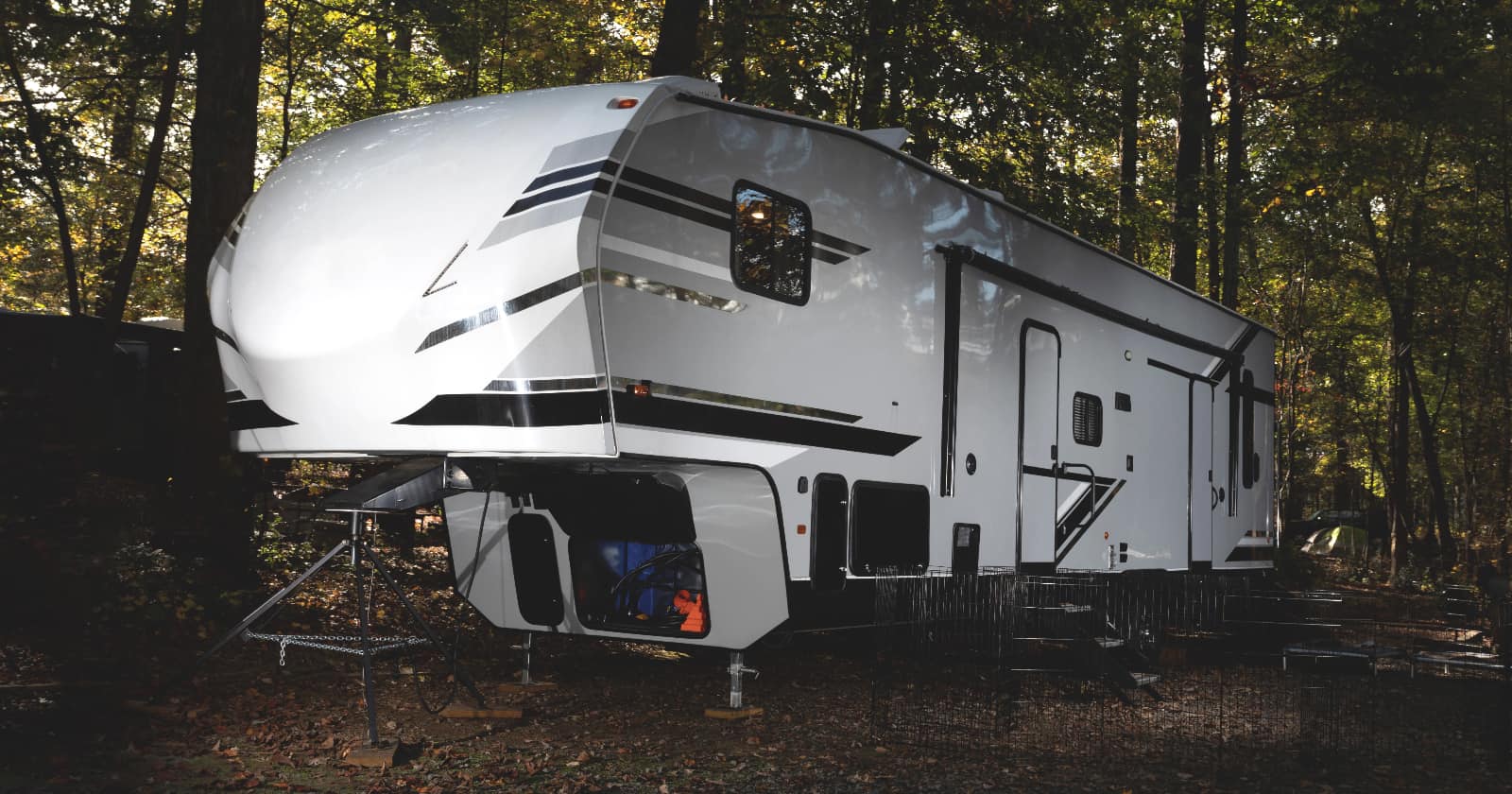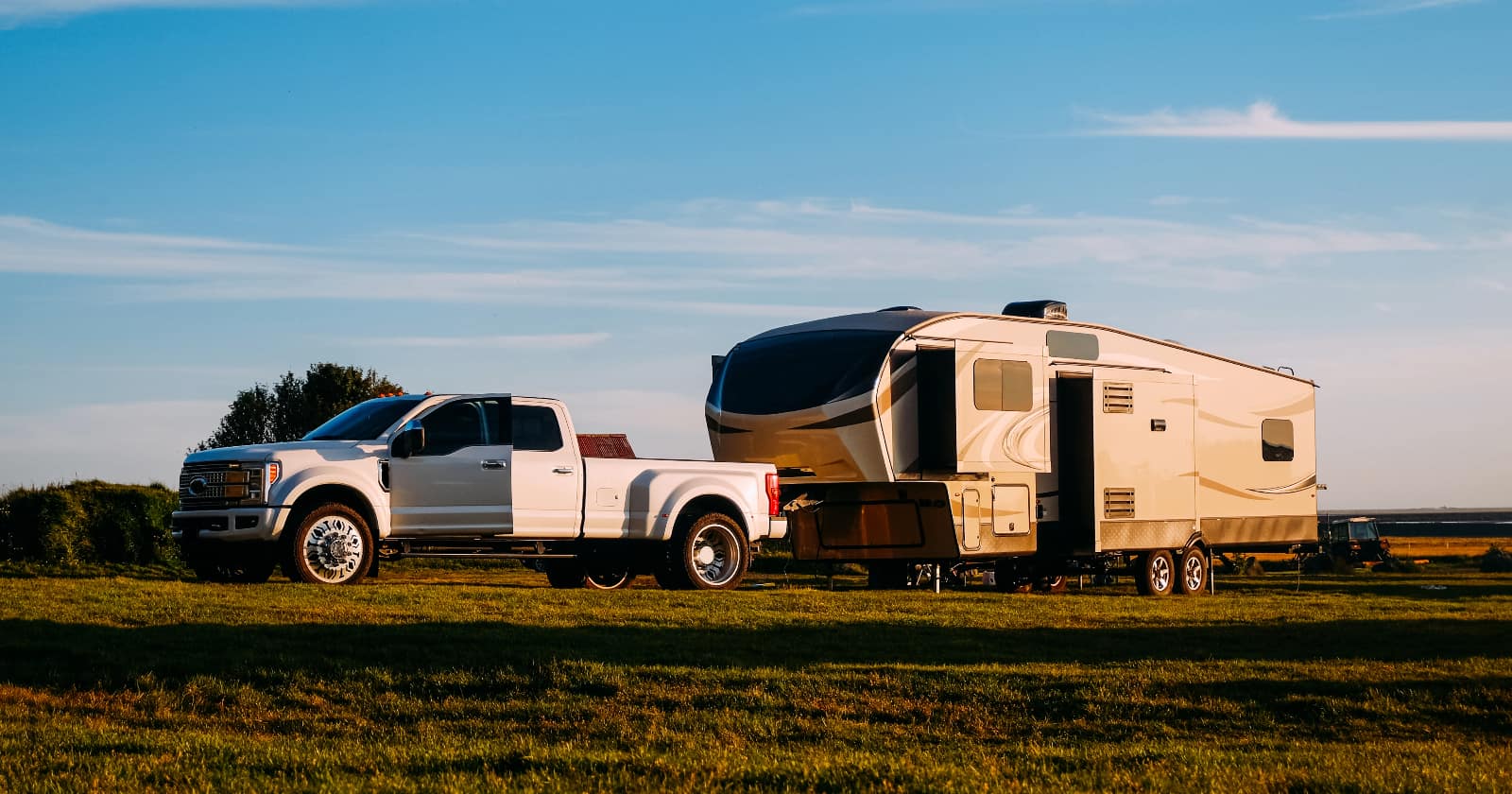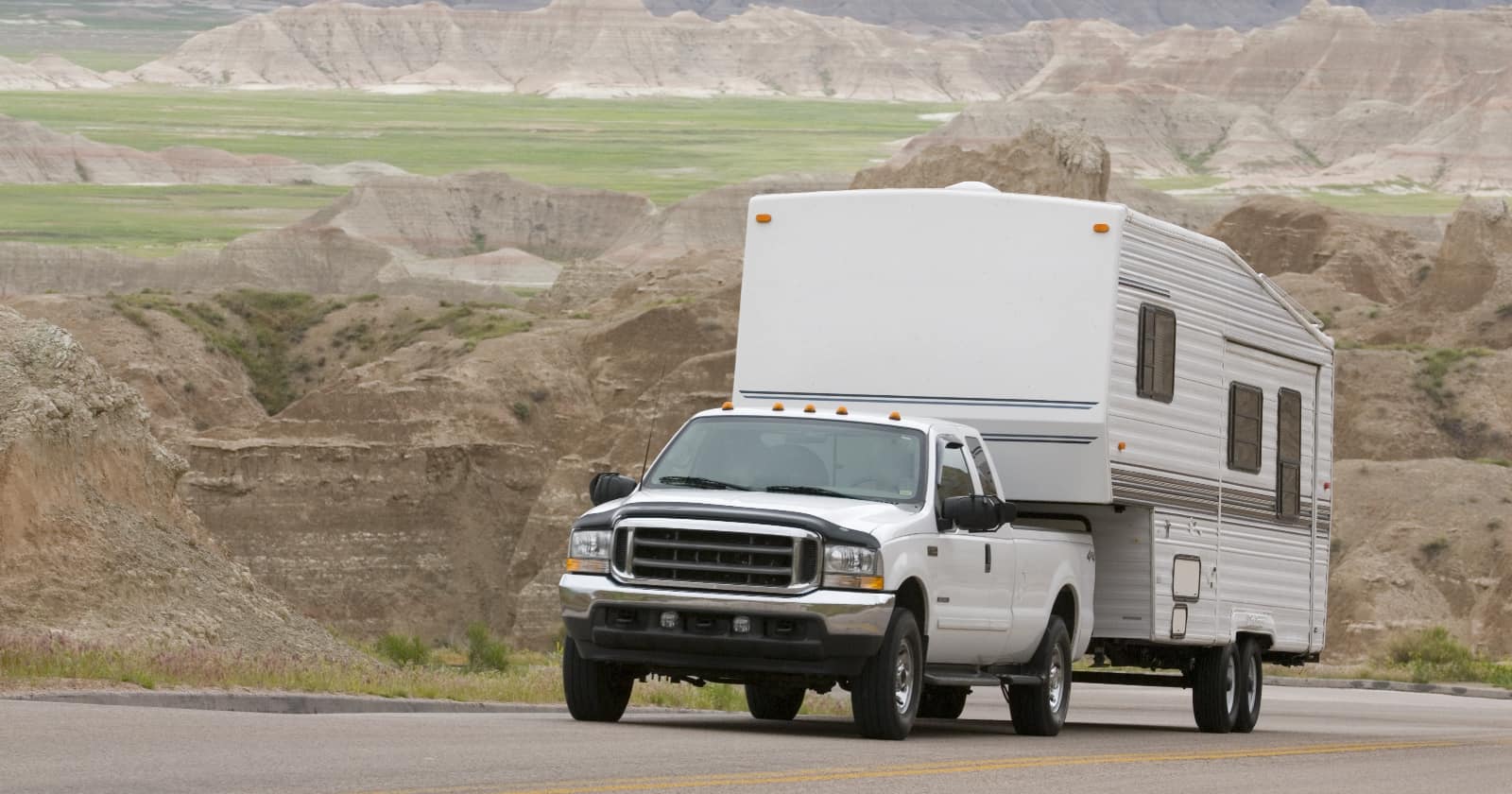Your Ultimate Guide To Choosing the Best Truck for Towing a 5th Wheel or Large Travel Trailer
Safety, Safety, Safety
When my wife and I were choosing a truck, safety was our primary focus. We wanted to make sure that we, as well as other drivers on the road, were safe and that our equipment would be protected at all times. Given that this RV would be our home for an extended period of time, we wanted to guarantee it was secure, even when we were traveling at highway speeds. The best truck for towing had to also be SAFE!
Where Did We Start?
In order to determine the best truck for towing our RV, a large Grand Design 5th wheel, we needed to obtain two crucial weight figures.
- GVWR (Gross Vehicle Weight Rating)
The GVWR of the RV refers to the maximum allowable weight of the vehicle, including all the payloads such as furniture, appliances, and modifications, among others.
- Pin Weight
Pin Weight represents the weight that is exerted on the truck’s bed. We needed to know how much weight would be resting on the hitch and, ultimately, on the truck’s frame and suspension.
Towing Guides
According to Grand Design, our 397TH would have a GVWR of 20,000 pounds and a Pin Weight of approximately 3500 pounds. With these numbers in hand, I proceeded to narrow down the options by consulting the official towing guides of the top truck manufacturers: Ford, Ram, and Chevy.
Across all brands, it was apparent that our 397TH trailer – with a 20,000-pound GVWR – exceeded the towing capacity of all 150s, 250s, 1500s, and 2500s. Based on my findings, it was clear that only the diesel variants of the Ram 3500, Chevy 3500, and Ford F-350 & 450 had sufficient towing capacity to haul our trailer and were candidates for the best truck for towing our RV.
SRW vs. DRW (Single Rear Wheel vs Dual Rear Wheel)
Our next consideration was whether to go for a dual rear wheel or stick with a single rear wheel setup, which depended on the Pin Weight. The towing guides indicated that every brand’s single rear wheel choices were borderline capable, but were they safe? While it was technically possible to tow without a dually, it would lead to reduced stability in high winds or during emergency movements, and a rear wheel blowout could be disastrous.
Single-wheel setups also offered no margin for error regarding payload capacity, which meant that we had very little freedom to add weight through modifications or by carrying extra fuel or cargo on a travel day. Given all these factors, it was clear to us that a dually was the way to go when buying the best truck for towing.
Other Factors To Consider When Choosing the Best Truck for Towing
With towing ability no longer a concern, we began to narrow down our options based on other factors. There were no significant differences in warranties, reputations, and prices between the brands. The remaining factors were convenience features and visual appeal. Right from the start, Ford was my top choice, based solely on appearance. However, upon further investigation, I found that Ford was the only manufacturer that had a 360-degree camera system with the bird’s-eye-view feature at that time, a strong factor in determining the best truck for towing our 5th wheel.
Considering that this technology was not yet available from any other brand at the start of 2019, and I would be driving the largest vehicle I had ever driven to places I had never been, including navigating through tight campgrounds and cities regularly, it was difficult to choose a truck that didn’t have this feature. So at that point, it was appearance and technology that caused every other option to be eliminated except for the Ford F-350 and 450.

F-350 vs. F-450
When I was comparing the two, I stumbled upon some information that was confusing at first. Despite having beefier brakes, axles, tires, and a higher-torque rear axle ratio, the 450 had less payload capacity than the 350, which didn’t make sense to me.
Upon further investigation, though, I found a reason. Anything above a 14,000-pound GVWR is classified as a Class 4 truck, which falls under commercial guidelines, so on paper, Ford has “de-rated” the 450 down to that weight because being classified as commercial would cause vehicle registrations to cost more and increase the price of insurance for consumers.
Ford has found a way around this problem, though, by marketing the 450 as a Class 3 consumer-grade truck, although it more closely resembles a commercial-grade Class 4. The 450’s weightier components cause the vehicle to have a lower payload capacity than the lighter 350, as the weight is taken from the 14,000 GVWR. Although a bit misleading at first, after considering all factors, it seemed that spending a little more money on the 450 would result in a significant upgrade.
And not only did the wider front end of the 450 give it a more balanced and aggressive appearance, but it also provided more space for the wheels to turn, enabling a tighter turn radius. The 450 was definitely the front runner for us as the best truck for towing, but to be absolutely certain, we felt it was important to test drive both options before making a final choice.
Test Drive
We found a dealer near us that had a 350, so we tried it out first and were thoroughly impressed. We were pleasantly surprised by the interior of the vehicle, which was not only quiet and comfortable but also smoother than we anticipated, especially considering its weight and towing capabilities. Once we were back at the dealership, I tried a 180-degree turn to assess the turn radius, and it turned out to be quite wide.
Although I was aware that the 450 would perform better, having never operated a 22-foot dually, I assumed this was the norm and I’d eventually get used to it. We then traveled a few hours away to test drive a 450, and it completely blew our minds. The variance in turn radius was night and day. It felt tighter than anything I’d ever driven, and we were both incredibly excited about this benefit. It was now clear to us that the 450 was the right choice.
Configuring & Ordering
Next, I went to Ford.com and carefully chose each and every feature of our ideal truck. We had planned on custom ordering the truck from the factory, but then we found two black F-450 Platinums with almost all the features we wanted within a few hundred miles of our location.
I figured I could haggle for a better price on trucks that were already available on the lot rather than custom-ordered ones since the dealerships were looking to sell these as quickly as they could. And in the end, that’s what we decided to do. With a few emails, I sparked a bidding war between the two dealerships and chose the winner after reaching the rock bottom price. We ended up saving more than $6200 off the MSRP. We placed a deposit over the phone and traveled a few hours to pick it up.
Accessories & Modifications
After purchasing the truck, we then needed to determine if there were any necessary accessories and modifications we needed to make this the ideal full-time tow vehicle. Be sure to subscribe here, as I’ll cover that in the next video.
To make things easier, I created a video playlist that covers each step we took in chronological order as we built out our full-time setup. You can find it on my YouTube channel homepage or by clicking here.
Conclusion – What Is the Best Truck for Towing a Huge RV?
Selecting the best truck for towing our RV was no small feat. It required us to weigh many factors, including safety, dependability, and convenience. And after much careful deliberation, we came to the firm conclusion that the Ford F-450 was the optimal choice for our needs.
Now, some may argue that this truck comes at a premium price, and they would not be wrong. But let me tell you, the additional features and cutting-edge technology that come with it are worth every penny. And let’s not forget its commanding presence on the road, with its broad front end exuding a sense of power and purpose.
So after 3 years of exploring this country, it is with full confidence that we can now say we made the right choice, at least for us. The road ahead may be long and winding, but with the Ford F-450 at our side, we are more than ready to take on whatever challenges may come our way. So, if you see us cruising by in our Ford F-450, be sure to give us a wave. We’ll see you out there on the open road.




Criss. Thank you for the through evaluation of the Fords. I purchased a Ford 150 Platinum with an eco boost 10 speed tranny. We were buying a 9600 pound Rosboroug Pocket Trawler. When we bought the boat and Jared them all seemed well. The numbers were ok, touché weight good lights and cameras perfect. And Ford’s backup assist allowed straight backing a loooong way than I would have done lookin in the mirrors, I picked the boar up in thr Maryland East shore and I singlehanded drove to KeyLargo. No serious problems. I have towed small 14” skits behind cars but this was big boy stuff. It took paying a lot more attention to EVERYTHING. A simi-truck meant get ready for a wind shift and sear. I soon learned that Platinum had a stability system that sensed that an pre corrected for it. I made it to FL with no mishaps the truck or I could not workout way out of.
My wife flew down to FL a month later.. I had the boat ready she fitted out bedding food and galley. We had a fantastik month cruising theFlorida Keys from Largo to KeyWest. In early June it’s too hot for this NEWENGLAD YANKEE so we pulled to boat on thr trailer and headed north. The boar did not seem to tow any where as well going north☹️ My wife was white knuckling every bump and turn. I felt the instability as well. The fully loaded boat with fuel Warner and gear. Must have pushed us over gross weight. We kept the speed down and my wife did not volunteer her services
as driver. When we got as far as the Susquehanna River our luck ran out— blowout on trailer tire.
Trucks automatic stability probably saved our butts. Found a rest area and with assistance from a trucker this 78 year old guy AB 76 yr old lady got the tire changed. We crawled up into the boat and did bit of dry land dry camping for the night.
A new day dawned and after an on board breakfast we saddled up again and headed through NewYork. Can yo believe a second blowout in White Plains NY city. Drove the limply rig about two miles to exit for a commuter rail station parking lot. Again I think We were saved by the truck.
We called our roadside service but were informed that without a serviceable spare tire we were SOL we were not very happy😢 Something not working and going to have to go,Truck would tak a big depreciation hit, I really don’t want to give up the boat (hard to find this model) and I really can’t give up a 37 year marage over a boat\ truck rig. We unhitched the boat,called local police and left the boat in CT overnight. We had a three hour drive to RI and home—good night sleep. In morning loaded to truck with air compressor and y hydraulic air jacks and tools and went back for the boat. Sad story but it does end well. The friend we stayed with in Florida ha said he liked our boat and might consider buying one. Well he heard our story and has a Ram 3500 already. He now has a boat to pull. It was sold before I crossed the RI state line. When we purchase the next boat we
WILL PUT THE HORSE BEFORE THE CART. An rest assured it will be a 450 Platinum. Gas cause it’s cheaper and seems to have similar capacity. But that’s not carved in stone. Hell maybe wheel really put thr Sprinter Winnebago ERA into full time retirement for a year or so.
Love Retirement
What an adventure Jim! Thanks for sharing. It’s definitely easy to overload both the truck and the trailer. Following the towing guides from the manufacture is the best way to stay safe. Enjoy retirement!
IF YOU COMPARE THE 350 AND 450 WITH SIMILAR OPTIONS AND STANDARD FEATURES THE 450 IS ONLY ABOUT $1000 MORE HERE IN CANADA. ITS A NO BRAINER TO CHOOSE A 450 OVER A 350 DRW PICKUP
I’d have to agree Bill! Considering all the upgrades you get with the 450, it’s hard to justify choosing the 350, especially if you’re going with the dually configuration.
One thing I ALWAYS tell people who ask me about the BEST vehicle to tow their large RV is this. The most important rule of thumb for buying a vehicle is not what will tow it, but will stop it. Because with todays powerful engines and increased towing capabilities one could almost pull a 40′ 5th wheel with a half ton truck. However could you STOP that vehicle in a pinch. So what your vehicle can pull is just part of the equation.
Good advice Terry! The chassis is definitely the limiting factor these days.